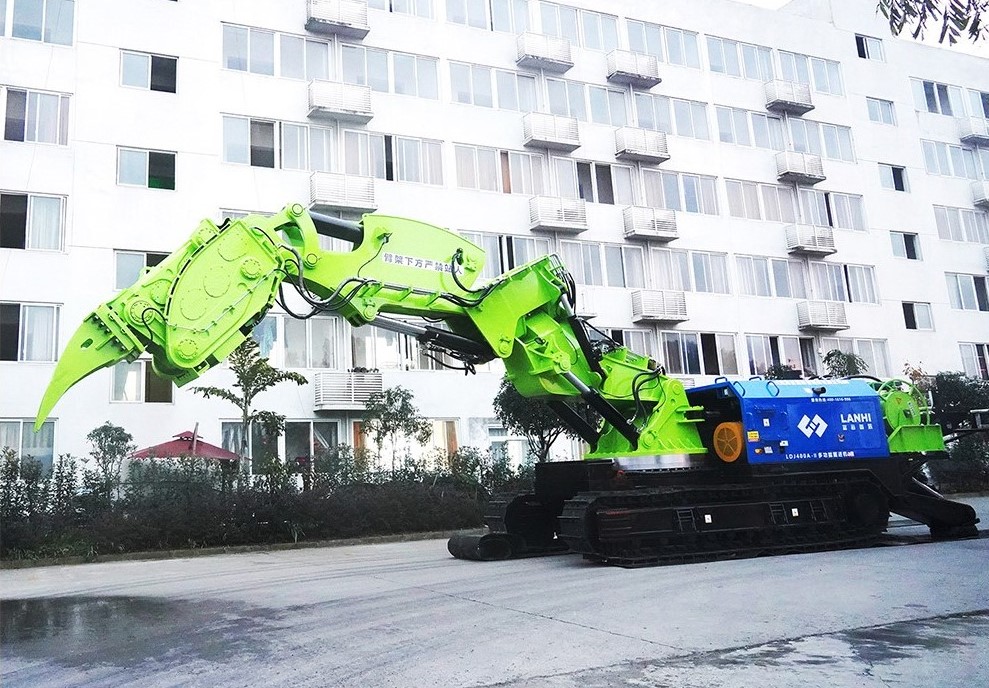
What types of boring machines are there? Introduction to several common boring machines
There are various types of tunneling machines designed to meet different engineering requirements and geological conditions. Here are some common types:

1. Tunnel Boring Machine (TBM): A TBM is a specialized mechanical equipment used for excavating underground tunnels. It includes various types such as shield machines, hard rock TBMs, and earth pressure balance TBMs, chosen based on specific project needs.
TBMs typically consist of a cutting head, disc cutters, propulsion system, screw conveyor, and support systems. The cutting head can be adapted with different tools and operating modes according to geological conditions.
2. Drilling Jumbo: Primarily used for drilling and blasting operations in underground projects like tunneling pre-works, rock control, and support, commonly employed in mining and tunneling projects. A drilling jumbo typically comprises multiple drill heads, enabling simultaneous drilling operations to enhance efficiency.
3. Roadheader: A mechanical device utilized for excavating underground roads, tunnels, and other subterranean passages, suitable for various types of rock and soil geology. Roadheaders typically employ rotary cutting heads or disc cutters to excavate rock and soil, while hydraulic systems control and propel the machine.
4. Mining Tunneling Machine: Similar in function to tunnel boring machines, mining tunneling machines are employed for excavation operations in underground mines. They include light and heavy-duty machines used for extracting minerals, coal, salt, etc. Mining tunneling machines generally possess higher production capacity and stronger drilling capabilities to meet the demands of mining operations.
5. Foundation Engineering Tunneling Machine: Primarily used for underground excavation in building foundation projects such as digging underground tunnels, pipelines, and excavations for basements, contributing to improving the efficiency and quality of foundation engineering construction.
These are just a few common types of tunneling machines. With ongoing technological advancements and evolving engineering requirements, new types and improved models may emerge in the future.
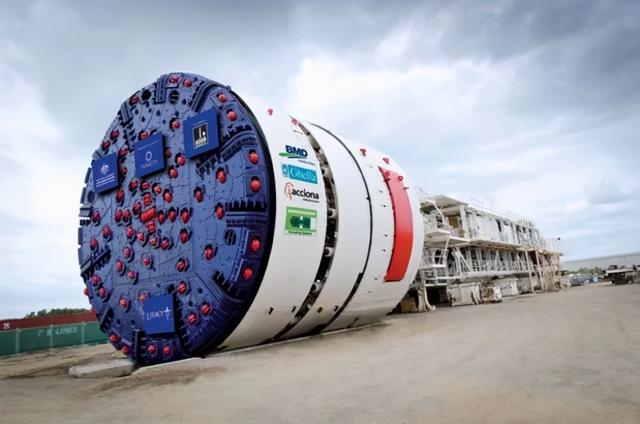
The Origin and Working Principle of Shield Tunneling Machines
Shield tunneling machines, seemingly complex yet fascinating mechanical behemoths, have become the cornerstone of modern tunnel construction. With their powerful excavation capabilities and precise construction techniques, they have opened a new chapter in underground engineering for humanity. Let's delve into the world of shield tunneling machines to explore the mysteries and allure behind them.

I. Origin and Development of Shield Tunneling Machines
The history of shield tunneling machines can be traced back to early 19th-century England. In order to construct a tunnel beneath the Thames River, engineer Marc Isambard Brunel invented a construction method called "shield tunneling." This method involved supporting the tunnel walls by constructing a movable steel "shield" within the tunnel, facilitating excavation and construction. With technological advancements, shield tunneling machines have evolved into the high-tech marvels we know today.
II. Working Principle of Shield Tunneling Machines
The working principle of shield tunneling machines is not overly complicated; they mainly rely on a series of precision mechanical devices and advanced control systems to perform complex operations such as excavation, support, and propulsion. Specifically, the front end of a shield tunneling machine is equipped with a rotating cutterhead that cuts through the soil with high-speed rotating blades. Simultaneously, an internal screw conveyor transports the excavated soil to the rear discharge chute. Behind the cutterhead, the machine's support system automatically deploys prefabricated concrete segments, forming a sturdy tunnel lining to ensure construction safety.
III. Advantages and Challenges of Shield Tunneling Machines
The emergence of shield tunneling machines has greatly improved the efficiency and safety of tunnel construction. They can operate under various complex geological conditions and boast a high degree of automation, significantly reducing labor costs. However, their use also presents some challenges. For instance, in certain geological conditions such as soft soil or hard rock, shield tunneling machines require tailored design and adjustments to adapt to different construction environments. Additionally, the maintenance and upkeep of shield tunneling machines pose a formidable task, necessitating regular inspections and maintenance by skilled technicians.
IV. Applications of Shield Tunneling Machines in Modern Tunnel Construction
Today, shield tunneling machines are widely used in tunnel construction across various sectors including railways, highways, water conservancy, and municipal infrastructure. Whether traversing mountain ranges or crossing major rivers, shield tunneling machines showcase their unique advantages. For example, in the construction of subway tunnels crossing the Yangtze River in Wuhan, shield tunneling machines were employed to successfully overcome challenges posed by complex geological conditions. Furthermore, with the continuous advancement of technology, the functionality of shield tunneling machines is expanding and improving, offering promising prospects for playing crucial roles in future tunnel construction projects.
As the "giants" of modern tunnel construction, shield tunneling machines have made significant contributions to underground engineering for humanity with their powerful excavation capabilities and precise construction techniques. Despite facing challenges during operation, it is believed that with ongoing technological progress and innovation, shield tunneling machines will play an even more significant role in future tunnel construction, contributing to the creation of a better living environment for humanity.
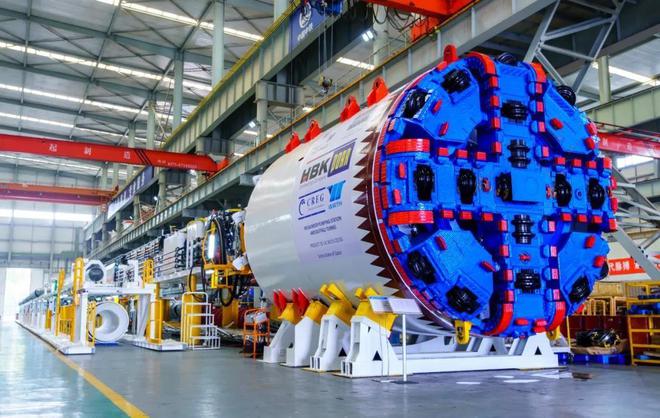
What are the manufacturers of tunnel boring machines (TBMs)? A rundown of famous TBM manufacturers at home and abroad
As the core equipment in tunnel engineering, tunnel boring machine (TBM) manufacturers are widely recognized worldwide. These manufacturers provide strong support for tunnel construction globally with advanced technology, excellent quality, and rich experience. So, do you know which manufacturers produce TBMs? Next, let's explore the well-known TBM manufacturers both domestically and internationally.

I. Domestic TBM Manufacturers
1. China Railway Construction Heavy Industry (CRCHI): A subsidiary of China Railway Construction Corporation (CRCC), specializing in TBM research, development, and manufacturing, with products widely used in urban rail transit, railway tunnels, and other fields.
2. Northern Heavy Industries Group Co., Ltd. (NHI): A large enterprise located in Dalian, Liaoning Province, with qualifications for TBM production and manufacturing covering various models and specifications.
3. XCMG Group: A well-known construction machinery manufacturer in Xuzhou, Jiangsu Province, also involved in the TBM field, providing high-quality TBM products.
4. Sany Heavy Industry Co., Ltd.: One of China's largest construction machinery manufacturers, with its TBM business continuously growing and boasting strong technological capabilities.
5. China Railway Construction Heavy Industry Corporation (CRCHI): Affiliated with China Railway Construction Corporation (CRCC), focusing on the research and manufacturing of TBMs and related equipment, offering reliable product quality.
6. Tianhe Machinery: Specializing in the research, development, production, and sales of TBMs and supporting equipment, with strong technological innovation capabilities.
7. China Railway Shanhe Intelligent Equipment Group Co., Ltd.: A high-tech enterprise in Changsha, Hunan Province, venturing into TBM manufacturing, providing intelligent and efficient TBM products.
8. Xugong Machinery: A renowned construction machinery manufacturer in Xiamen, Fujian Province, also producing TBMs, known for high quality and excellent after-sales service.
9. Jereh Group: A machinery manufacturing enterprise in Jinan, Shandong Province, with qualifications for TBM production, mainly applied in the tunnel construction field.
10. China Shipbuilding Industry Corporation (CSIC): A subsidiary of China Shipbuilding Industry Corporation, besides shipbuilding, also involved in the TBM field, offering customized TBM solutions.
II. Well-known Foreign TBM Manufacturers
1. Herrenknecht AG: A German company, one of the largest TBM manufacturers globally, providing various types and sizes of TBMs.
2. The Robbins Company: An American company, specializing in the design and manufacturing of TBMs and tunneling equipment.
3. Mitsubishi Heavy Industries: A Japanese company, offering a wide range of engineering and construction equipment, including TBMs.
4. Hitachi Zosen Corporation: A Japanese company primarily engaged in shipbuilding and heavy industry, also producing TBMs and tunneling equipment.
5. NFM Technologies: A French company specializing in underground engineering and tunneling technology, providing TBMs and related equipment.
6. Komatsu Ltd.: A Japanese company mainly producing construction and mining equipment, also offering TBMs.
7. Terratec Pty Ltd: An Australian company focusing on TBM and tunneling technology, providing solutions for the global market.
8. SELI S.p.A.: An Italian company providing TBM and underground engineering solutions.
9. Lovsuns Tunneling Canada Ltd.: A Canadian company specializing in the design and manufacturing of TBMs and tunneling equipment.
10. Kawasaki Heavy Industries, Ltd.: A Japanese company mainly engaged in heavy industry and machinery manufacturing, also offering TBMs and related equipment.
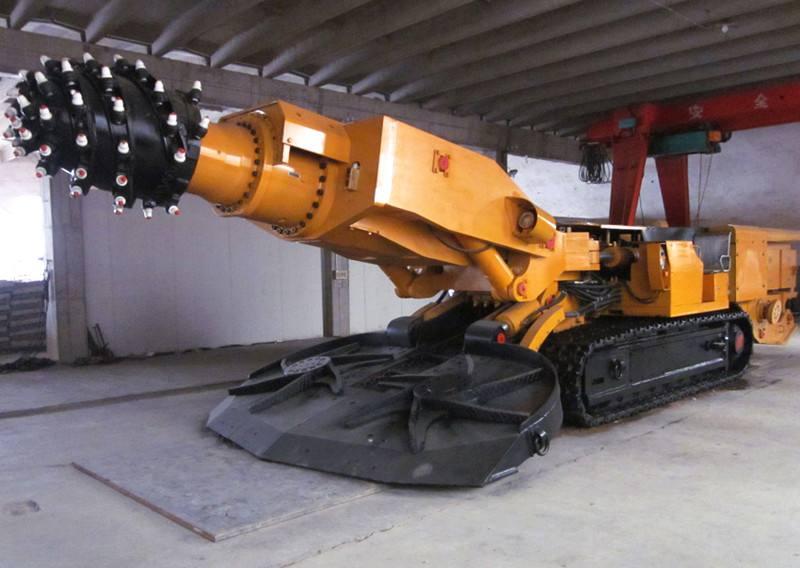
How many meters can a tunnel boring machine advance in a day? Explanation of excavation speeds for different types of tunnel boring machines.
How many meters can a tunnel boring machine advance in a day? The working speed of a tunnel boring machine depends on various factors, including geological conditions, machine model and specifications, and operator skills. Generally, in favorable geological conditions, a tunnel boring machine can advance several tens to several hundred meters per day. However, progress may be limited in complex geological conditions. The specific progress is usually evaluated and planned by the construction unit according to the actual situation and project requirements. Below are the excavation speeds of different types of tunnel boring machines under normal conditions.

1. Small handheld drilling rigs: These machines are suitable for small-scale projects such as house construction and road maintenance. Their daily advance rate is generally around 10 meters.
2. Medium-sized machinery: Such as reverse circulation drilling rigs, hydraulic drilling rigs, etc., they perform well in medium-sized projects. The daily advance rate is between 30-50 meters.
3. Large machinery: For example, shield tunneling machines, which are mainly used in large-scale construction projects such as subways and tunnels. Their daily advance rate can reach over 100 meters, and even in ideal geological conditions, it can exceed 200 meters.
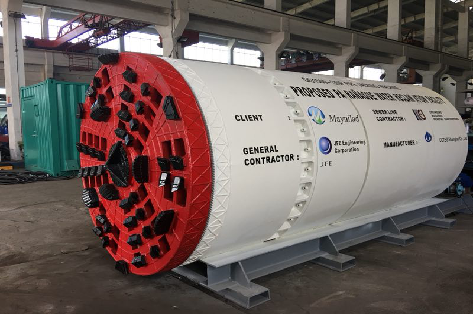
How much does a pipe jacking machine cost per unit?
How much does a pipe jacking machine cost per unit? The price of a pipe jacking machine is influenced by various factors, including the model, specifications, technical parameters, manufacturer, and market supply and demand conditions. Generally, a small used pipe jacking machine may cost tens of thousands of RMB, while a large new pipe jacking machine, especially those with advanced technology and functions, may cost millions or even tens of millions of RMB.

For example, the price of some ordinary small earth pressure balance tunnel boring machines (TBMs) may range from 2 to 5 million RMB, while larger and more complex machines, such as hard rock tunnel boring machines (TBMs), may cost 50 to 100 million RMB or more.
It should be noted that these prices are for reference only, and actual purchase prices may vary depending on specific circumstances. If you need to purchase a pipe jacking machine, it is recommended to directly contact professional machinery equipment dealers or manufacturers to obtain detailed quotations and product introductions. At the same time, considering that operating and maintaining a pipe jacking machine requires professional knowledge and skills, it is also necessary to ensure appropriate technical support and service guarantees before purchase.
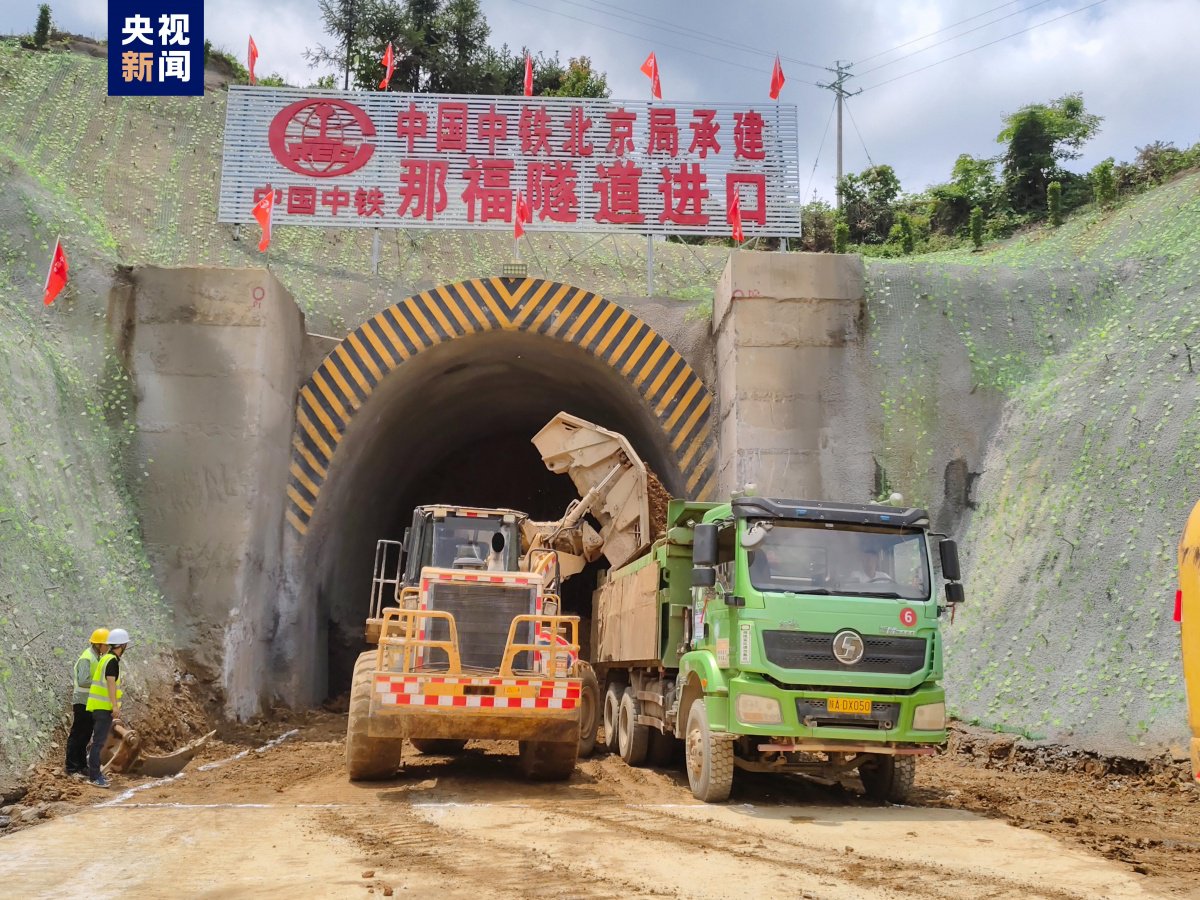
Construction Phase Begins for Nafu Tunnel Project in Guangxi, Spanning 12,357 Meters
The Huangbai Railway, which spans Guizhou and Guangxi provinces, connects the Nanning-Kunming Railway to the south and the Shanghai-Kunming Railway to the north, forming an essential part of the Western Land-Sea New Channel West Passage. Passing through the revolutionary old areas of Baise, as well as ethnic minority areas such as the Miao, Yao, and Buyi, the railway has a total length of approximately 315 kilometers and is designed for a speed of 160 kilometers per hour. It is classified as a Grade I single-track electrified railway.

On May 7th, the tunnel project section of the Guangxi segment of the Huangbai Railway officially entered the construction phase in Lingyun County, Baise City, Guangxi. This marks the comprehensive initiation of the tunnel project section of the Huangbai Railway in Guangxi. The Guangxi section of this railway will include the construction of 33 new tunnels, totaling 109.735 kilometers in length, as well as 33 new bridges, with a total length of 15.974 kilometers. With a bridge-to-tunnel ratio as high as 90.6%, it currently has the highest bridge-to-tunnel ratio among railways in Guangxi.
The first super-large tunnel under construction is the Nafu Tunnel, with a total length of 12,357 meters, making it one of the seven super-large tunnels exceeding 10 kilometers along the entire Huangbai Railway line. The tunnel construction adopts the layout of "2 inclined shafts and 1 level guide," with a total of 7 working faces for construction. Due to the enormous length of the tunnel, ventilation poses a significant challenge, with ventilation distances of around 4 kilometers for five of the working faces.
To ensure construction quality and progress, the construction unit will deploy 375 construction workers and 60 sets of various construction equipment and vehicles. Additionally, through advanced geological forecasting, monitoring, and specialized optimization design, such as rock drilling cars, hydraulic arch stackers, and automatic pouring of the second lining, the construction level of mechanization and automation has been improved, enhancing construction efficiency and ensuring smooth tunneling.
The completion of the Huangbai Railway will play a vital role in the layout of the regional railway network, especially for the freight transport corridor from Sichuan-Chongqing-Guizhou to the Beibu Gulf Port, providing the shortest, optimal, and fastest transportation route and significantly promoting regional economic and social development.
The completion of the Huangbai Railway will also serve as a convenient route from northern Guizhou to the northern Beibu Gulf region of Guangxi, accelerating the construction of the Western Land-Sea New Channel and promoting the coordinated development of the regional economy and society, which is of great significance.
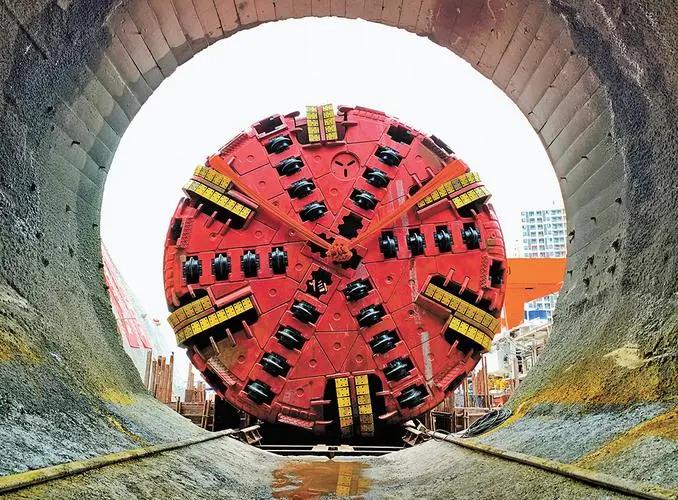
Chinese Enterprises Open a New Era of Shield Tunneling Construction in Chile
With the continuous acceleration of urbanization and the increasing demand for transportation, underground engineering construction, especially tunnel projects, plays an increasingly important role in urban transportation construction. In South America, an eye-catching subway project—the Santiago Metro Line 7 in Chile—used a new type of tunnel boring machine for excavation in April of this year. This project, undertaken by China Railway Construction Group, has a total machine length of 110 meters, a excavation diameter of 10 meters, and a target excavation length of 6.6 kilometers. This marks the first subway project in South America where Chinese enterprises have adopted shield tunneling construction.

At the project initiation ceremony, Chilean President Sebastián Pi?era Echenique stated that the launch of this project is of great significance to Chile's transportation construction. China Railway Construction is responsible for Section 1 of the project, which is also the first subway project in South America where a Chinese company has adopted shield tunneling construction, promoting the entry of Chinese equipment into the South American subway market.
During the specific implementation of the project, the debut of China Railway Construction's "Matucana" shield tunneling machine attracted widespread attention. Shield tunneling machines are hailed as the "kings of engineering machinery," and "Matucana" was independently developed and produced by China Railway Construction, with a total machine length of 105 meters and an excavation diameter of 9.8 meters. The naming of this tunneling machine was presided over by Juan Carlos Mu?oz, the Minister of Transport and Telecommunications of Chile, and symbolizes "Mother Earth," blessing underground construction.
The project manager introduced that the project faces a series of challenges, including complex geological environments and high requirements for turning capabilities. To address these challenges, China Railway Construction has independently developed a series of core key technologies and innovatively designed the cutterhead and turning mechanism to ensure safe and efficient long-distance excavation of the shield tunneling machine.
The Santiago Metro Line 7 in Chile, with a total length of 27 kilometers and 19 stations, connects seven districts in the capital city of Santiago and is a key project of the Chilean government in recent years. Section 1 of the Santiago Metro Line 7, undertaken by China Railway Construction, is the most important section of the entire line. After the project is completed, it will significantly reduce the commuting time for residents along the line, providing convenient travel services for over 1.36 million residents.
The launch of this project marks further development of Chinese enterprises in the subway field in South America and injects new vitality into underground transportation construction in Chile. With the introduction and application of this advanced technology, Chile's urban transportation network will usher in more convenient and efficient development.

How to Choose Tunnel Construction Partners? What Conditions Should Excellent Tunnel Construction Companies Have?
When selecting partners for tunnel construction, a crucial consideration is whether the company provides high-quality after-sales service. So, what conditions should an excellent tunnel construction company have? Let's take Blue Ocean Intelligent Equipment Manufacturing Co., Ltd. as an example to introduce the after-sales service that an excellent tunnel company should have.
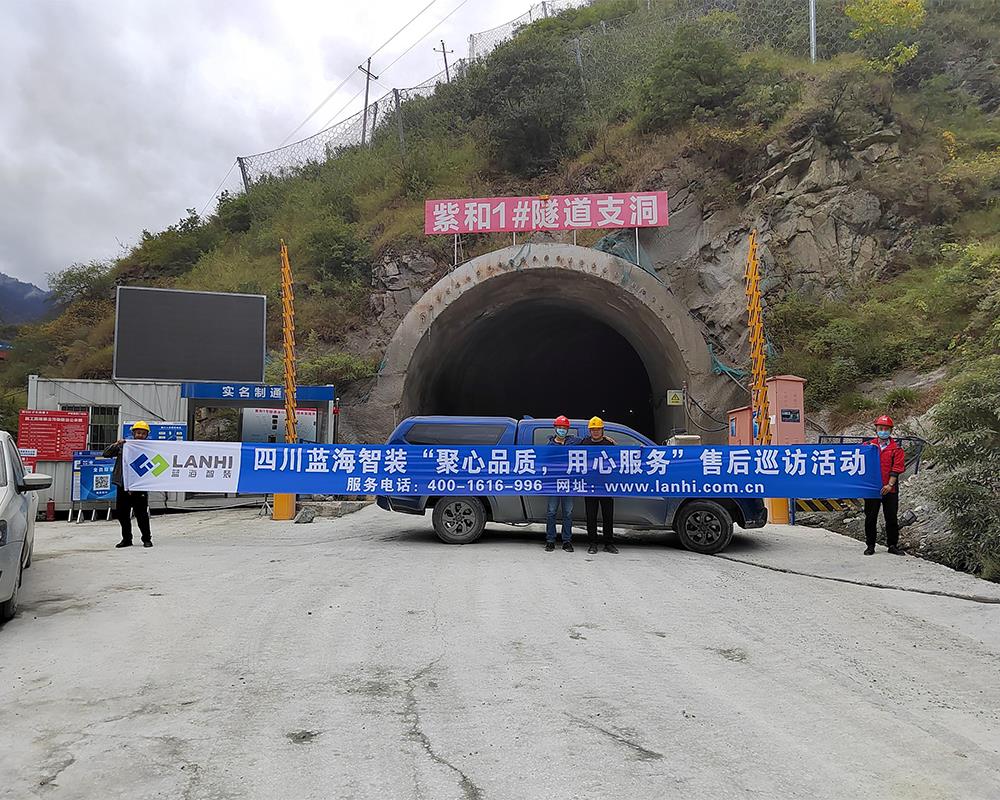
Firstly, Blue Ocean Intelligent Equipment has a comprehensive training mechanism for after-sales service. They offer various forms of training, including on-site and field training. On-site training involves regularly scheduled operator training classes, while field training involves sending after-sales specialists for installation, commissioning, and providing operational training and construction guidance to construction personnel after equipment delivery.
Secondly, Blue Ocean Intelligent Equipment emphasizes the establishment of service organizations and personnel configuration for after-sales service. They establish after-sales service points and parts warehouses in various locations when the number of equipment reaches a certain level. They also equip professional after-sales engineers and service vehicles to respond promptly to service needs. Currently, they have established after-sales service points in multiple regions and have over 200 after-sales personnel who conduct regular maintenance on equipment in designated areas.
Moreover, the after-sales service provided by Blue Ocean Intelligent Equipment is extensive. They dispatch experienced technicians to provide on-site guidance and technical support upon equipment delivery, assist customers in formulating construction plans, and conduct regular follow-ups while offering free technical consultations. Additionally, they provide a one-year warranty period for equipment quality, followed by lifetime paid services after the warranty period.
In conclusion, an excellent tunnel construction company should have a complete after-sales service system. Blue Ocean Intelligent Equipment, as a leading domestic underground engineering complete equipment integrator, has won the trust of customers with its high-quality after-sales service. Their after-sales service not only guarantees product quality but also maintains important customer relationships. In the future, they will continue to strive to improve their after-sales service level, create greater value for customers, and become long-term trusted partners for customers.
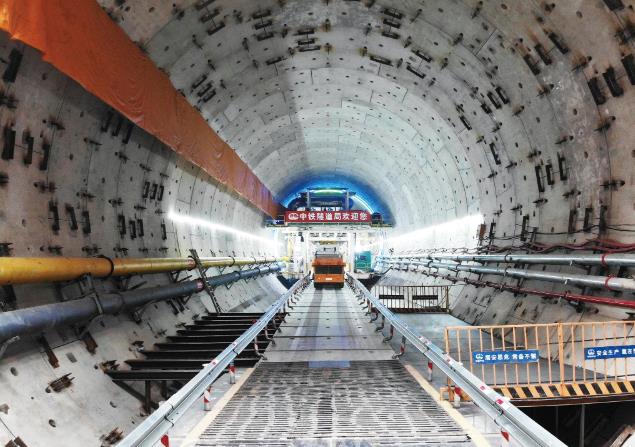
Traditional tunnel construction is transitioning towards intelligence and informatization
With the rapid development of technology, traditional tunnel construction methods are undergoing profound changes, accelerating towards intelligence and informatization. This transformation not only enhances construction efficiency but also greatly improves construction safety, while positively impacting the quality and environmental protection of tunnel projects.

The core of intelligent construction lies in the optimization of construction processes using advanced information technology, automation technology, and robotics. For example, by introducing Building Information Modeling (BIM) technology, engineers can create virtual models of tunnels on computers, simulate construction processes, predict potential issues, and formulate solutions in advance. This reduces errors and delays during actual construction, thus improving work efficiency.
The application of automated equipment in tunnel construction is also becoming increasingly widespread. For instance, the use of Tunnel Boring Machines (TBMs) has significantly reduced the need for manual excavation. Modern TBMs are equipped with advanced sensors and navigation systems, enabling precise tunnel positioning and orientation, reducing reliance on traditional support methods. Additionally, automated monitoring equipment can real-time monitor the stability of tunnels, promptly detecting cracks and leaks to ensure construction quality.
In terms of informatization, the application of big data and cloud computing technologies enables the collection, storage, and analysis of data in tunnel construction. By analyzing vast amounts of data generated during the construction process, construction plans can be optimized, resource utilization efficiency improved, such as rational scheduling of materials and equipment to reduce downtime. Furthermore, through cloud platforms, project team members can share information in real-time, enabling them to access the latest construction progress regardless of their location, thus improving team collaboration efficiency.
Intelligence and informatization also provide strong support for safety management in tunnel construction. For example, various sensors installed inside the tunnel can real-time monitor environmental parameters such as temperature, humidity, harmful gas concentrations, as well as tunnel deformation and crack development. Once abnormal data is detected, the system will immediately issue alerts, reminding workers to take appropriate safety measures. Additionally, through Virtual Reality (VR) and Augmented Reality (AR) technologies, immersive training experiences can be provided for workers, allowing them to learn operational skills and safety knowledge in simulated environments, thus enhancing their emergency response capabilities.

Advantages of the LanHi Intelligent LGM312N Intelligent Arch Anchor Integrated Trolley in Tunnel Construction
The intelligent arch anchor trolley is gradually becoming an important mechanized construction tool in the tunnel construction field, attracting widespread attention due to its advantages in reducing the number of construction personnel, lowering risks, and improving construction efficiency. Taking the LanHi Intelligent LGM312N Intelligent Arch Anchor Integrated Trolley as an example, this discussion explores its management strategies and application value in tunnel construction based on actual project conditions.

This trolley possesses several advantages, particularly in terms of functional configuration. It features an engineering chassis design, equipped with a dual-anchor rod system, four-wheel steering, four-wheel drive, bidirectional driving, and a dual-power system allowing for both electric operation and diesel-powered mobility, exhibiting strong adaptability. Additionally, it boasts a three-arm remote control system to meet various operational needs such as prefabricated arch installation, various step operations, and precise arch positioning adjustments, demonstrating flexibility and adaptability.
Furthermore, in terms of functional integration, this trolley integrates multiple processes including measuring point placement, excavation operations, arch installation, mesh anchor installation, advance support, and system anchor rod construction, significantly enhancing construction efficiency and convenience. Moreover, its high level of equipment informatization includes cluster management, video surveillance, and pre/alarm functions, further elevating the intelligence level of construction.
In addition to these features, the trolley also offers advantages such as high efficiency, prefabricated arch installation, dual-anchor rod system, grouting function, and reduced manpower, making the entire construction process more convenient and efficient, significantly reducing project costs, and improving construction quality.
In conclusion, the intelligent arch anchor trolley demonstrates tremendous potential and advantages in tunnel construction, playing a crucial role in enhancing construction efficiency, reducing costs, and ensuring construction quality. Therefore, selecting a suitable intelligent arch anchor trolley for project needs is crucial, and LanHi Intelligent, as an established and reputable manufacturer in the industry, offers reliable products.
